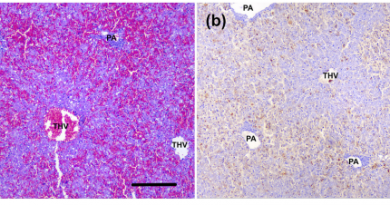Re-emergence of bluetongue virus serotype 4 in Iberian ibex (Capra pyrenaica) and sympatric livestock in Spain, 2018-2019
Transboundary and Emerging Diseases
Abstract
Between early October and mid‐December 2018, mortalities were detected in Iberian ibex (Capra pyrenaica) populations in southern Spain. In the same region and period, bluetongue virus (BTV) circulation was also reported in sentinel and clinically affected domestic ruminant herds. Molecular analyses confirmed BTV serotype 4 (BTV‐4) infection in eight Iberian ibexes from six hunting areas, and in 46 domestic ruminants from seven herds in close proximity to affected hunting estates. Histopathological analyses revealed vascular changes in several organs, pneumonia, lymphoid depletion, inflammatory mononuclear cell infiltrate and fibrosis as the most frequently observed lesions in the affected Iberian ibexes. Epidemiological and laboratory results indicate that BTV‐4 was the main aetiological agent involved in outbreaks detected in Iberian ibex populations during the study period. Sequence analyses indicated that the BTV‐4 strain detected in Iberian ibex had high homology (99.4%–100%) with strains isolated in livestock during the same period, and with previous isolates (≥98.9%) from Spain and Mediterranean Basin countries. Further studies are warranted to determine the impact of BTV‐4 on the health status of Iberian ibex populations after the outbreaks. The inclusion of this species in the surveillance programme may be useful for early detection of BTV, especially in epidemiological scenarios at the wildlife–livestock interface.




